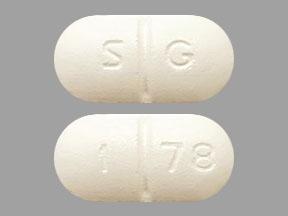Anticonvulsants (also commonly known as antiepileptic drugs or as antiseizure drugs) are a diverse group of pharmacological agents used in the treatment of epileptic seizures. Anticonvulsants are also increasingly being used in the treatment of bipolar disorder and borderline personality disorder, since many seem to act as mood stabilizers, and for the treatment of neuropathic pain.

Anticonvulsants suppress the rapid and excessive firing of neurons during seizures. Anticonvulsants also prevent the spread of the seizure within the brain. Some investigators have observed that anticonvulsants themselves may cause reduced IQ in children. However these adverse effects must be balanced against the significant risk epileptic seizures pose to children and the distinct possibility of death and devastating neurological sequelaesecondary to seizures.
Anticonvulsants are more accurately called antiepileptic drugs (abbreviated “AEDs”), and are often referred to as antiseizure drugs because they provide symptomatic treatment only and have not been demonstrated to alter the course of epilepsy.
Gabapentin (Neurontin) has been approved as adjunctive therapy in adults with partial seizures with or without secondary generalization . Begin with 300 mg daily; increase to 900 to 1,800 mg daily given every 6 to 8 hours. Side Effects maybe: Somnolence, fatigue, ataxia, dizziness, gastrointestinal upset, dyspnea.
A gamma-aminobutyric acid (GABA) analog, gabapentin does not interact with GABA receptors. Its mechanism of action is unknown.
Gabapentin is well absorbed orally, circulates mostly unbound in the plasma and is excreted unchanged in the kidneys without appreciable metabolism in the body. Oral bioavailability is approximately 60 percent and is not affected by food. The half-life is five to seven hours and is related to the creatinine clearance. Therefore, excretion is decreased in patients with renal impairment and decreased cardiac function, and in elderly patients. Gabapentin can be removed from the system through hemodialysis.
In clinical studies, gabapentin was found to be effective in adults with refractory partial seizures and was also effective in preventing the progression of partial seizures to generalized tonic-clonic seizures.
Because gabapentin has no known pharmacokinetic interactions with any other antiepileptic drugs, it is useful in patients taking other antiepileptic medication.